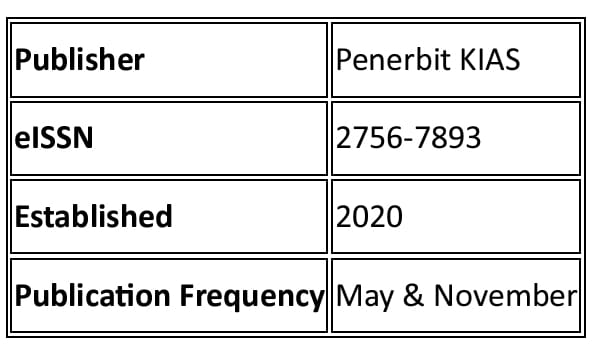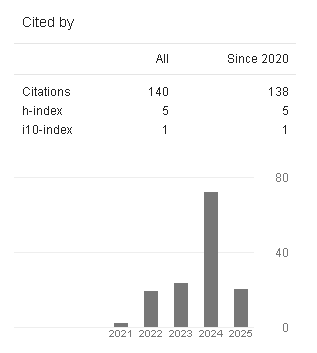Journal Specification
AI Usage Policy
Artificial Intelligence (AI) Usage Policy
The RABBANICA - Journal of Revealed Knowledge recognises the growing presence of Artificial Intelligence (AI) technologies in the academic and research landscape. While such tools may aid scholarly work, their use must adhere to ethical standards to ensure the authenticity, reliability, and academic integrity of all published content. This policy outlines the acceptable and unacceptable uses of AI tools (e.g., ChatGPT, Bard, GrammarlyGO, DeepL Write, and others) in preparing manuscripts submitted to the journal.
2. General Principles
2.1 Author Responsibility: AI tools may assist in writing, but human authors bear full responsibility for the accuracy, interpretation, and originality of all content submitted.
2.2 AI Cannot Be Listed as an Author: AI tools or models cannot be credited as authors or co-authors under any circumstances.
2.3 Transparency Required: Any use of AI in manuscript preparation must be clearly and transparently disclosed in the acknowledgements or footnotes.
3. Permitted Use of AI
Authors may utilise AI tools for the following purposes:
3.1 Grammar, language, or stylistic editing (e.g., AI-based proofreading tools).
3.2 Drafting non-substantive sections (e.g., outlines, summaries), which are then reviewed and rewritten by the author.
3.3 Translating minor content that does not include primary research findings or analysis.
3.4 Generating code or scripts in methodological sections (with full explanation and verification by the author).
Important Note: All AI-generated content must be critically reviewed, edited, and validated by the authors before submission.
4. Prohibited Use of AI
The following uses of AI are strictly prohibited:
4.1 Generating research data, experimental results, or findings that were not obtained through legitimate research methods.
4.2 Producing interpretative content in theology, hermeneutics, or scriptural exegesis without direct scholarly oversight and analysis.
4.3 Including AI-generated content without human revision or proper scrutiny.
4.4 Fabricating or manipulating references (hallucinated citations) or sourcing unverified material through AI tools.
5. Disclosure Requirements
If AI tools are used in any part of the writing process, the authors must disclose the nature of use in the Acknowledgements section. For example:
“Portions of this manuscript were assisted by artificial intelligence tools, specifically [name of tool], in areas such as [e.g., language correction, initial drafting]. All content has been reviewed and verified by the authors.”
6. Consequences of Misuse
Misuse of AI technologies resulting in plagiarism, data fabrication, or academic misconduct will result in strict action, including but not limited to:
6.1 Immediate rejection of the manuscript
6.2 Banning the author(s) from future submissions
6.3 Notification to the authors’ affiliated institutions
7. Policy Review and Updates
This policy will be periodically reviewed and updated to reflect developments in AI technologies and evolving international publishing ethics. The journal reserves the right to revise this policy at any time.
8. References to Related Policies
This policy aligns with international best practices and ethical guidelines, including those of:
8.1 Committee on Publication Ethics (COPE)
8.2 Elsevier AI Authorship Guidelines
8.3 Springer Nature Policy on AI in Scientific Writing
8.4 Taylor & Francis Ethical Policy on AI Use in Research
------------------------------------------------------
Effective Date: [15 May 2025]











